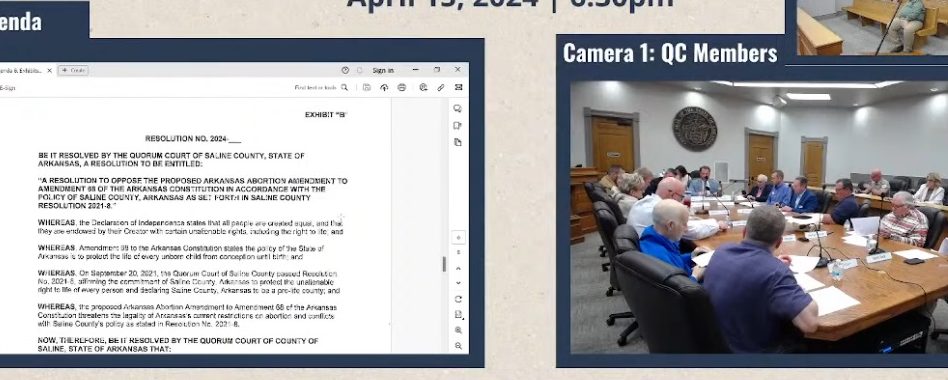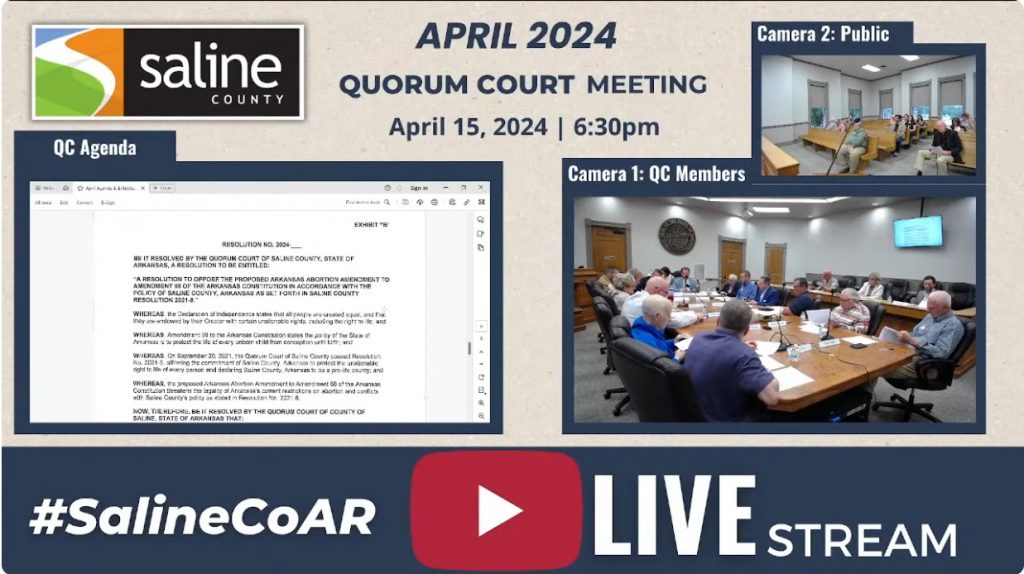Saline County Quorum Court Passes Resolution Opposing Abortion Amendment
On Monday the Saline County Quorum Court passed a resolution opposing the Arkansas Abortion Amendment of 2024.
A group currently is working to place the Arkansas Abortion Amendment on the November ballot. The measure would write abortion into the state constitution, and it would prevent the Arkansas Legislature from restricting abortion during the first five months of pregnancy — allowing thousands of elective abortions every year and paving the way for taxpayer-funded abortions in Arkansas without medical licensing or safety standards.
The Saline County resolution is titled, “A Resolution to Oppose the Proposed Arkansas Abortion Amendment to Amendment 68 of the Arkansas Constitution in Accordance with the Policy of Saline County, Arkansas as set forth in Saline County Resolution No. 2021-8“
In 2021, Saline County passed a resolution affirming that the county is Pro-Life. Monday’s resolution reaffirms the county’s Pro-Life status and opposes the 2024 Arkansas Abortion Amendment. Faulkner County recently passed a similar pro-life resolution opposing the abortion amendment.
The U.S. Supreme Court’s reversal of Roe v. Wade means state and local governments are now completely free to make their positions known on abortion. It’s good to see local elected officials taking a firm stand for life.
You can download a copy of the abortion amendment here.
Articles appearing on this website are written with the aid of Family Council’s researchers and writers.






